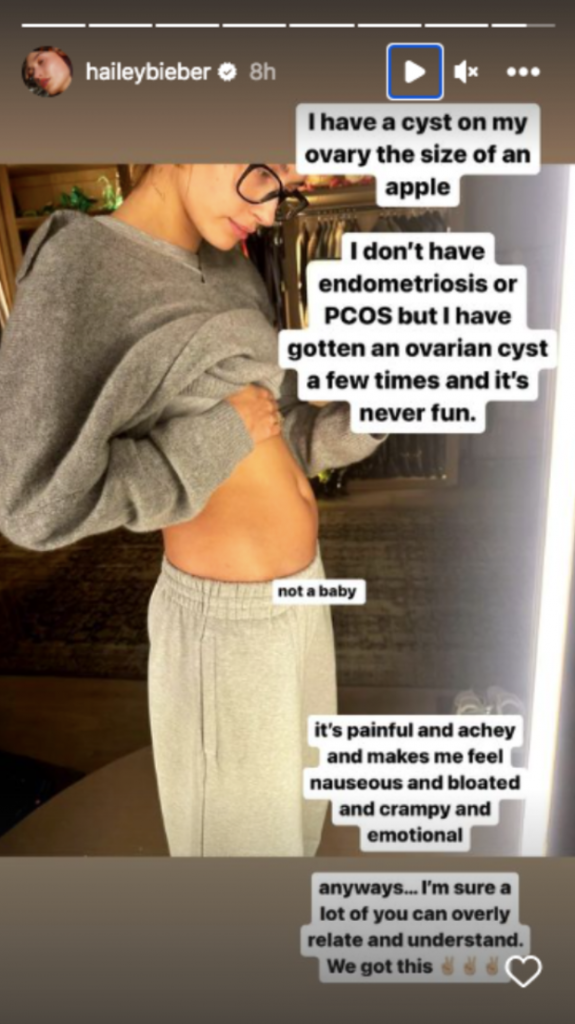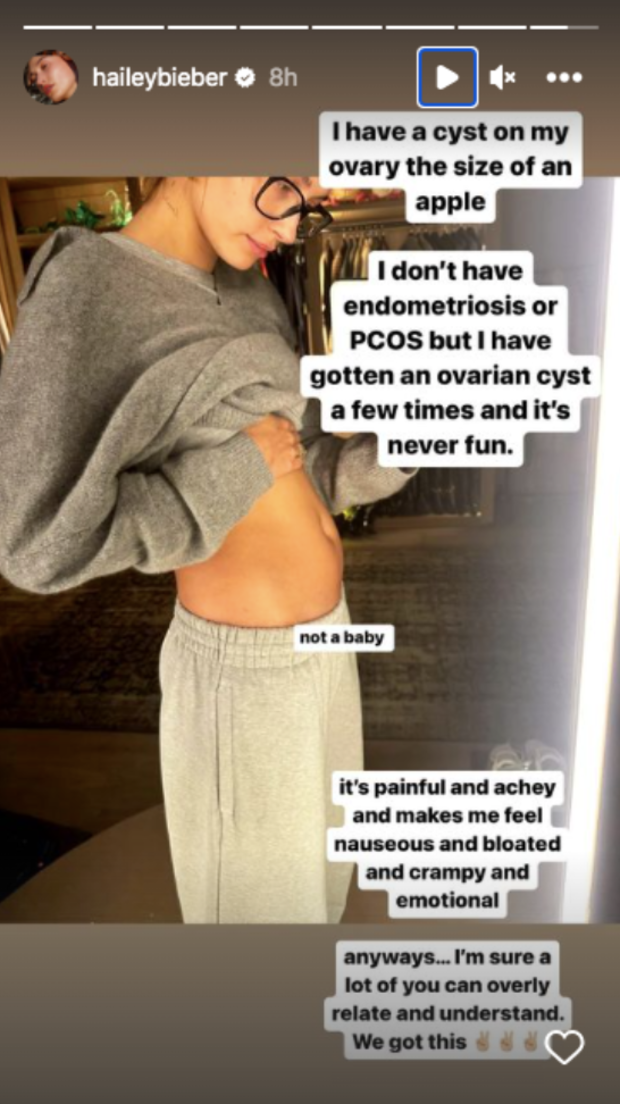
Hailey Bieber has opened up about a health issue affecting her – ovarian cysts. On Instagram, the model posted about the condition, which causes sacs, usually filled with fluid, to grow on the ovaries.
“I have a cyst on my ovary the size of an apple,” the 26-year-old wrote on her Instagram story. “I don’t have endometriosis or PCOS,” she said, referring to polycystic ovary syndrome, “but I have gotten an ovarian cyst a few times and it’s never fun.” She shared a photo of her stomach with a small bulge, writing “not a baby” next to it.
“It’s painful and achy and makes me feel nauseous and bloated and crampy and emotional,” she continued. “Anyways… I’m sure a lot of you can overly relate and understand. We got this.”
Bieber is right – many women can relate, because an estimated 10% of women experience ovarian cysts, according to Cedars Sinai.
Hailey Bieber
“Ovarian cysts are part of the whole process where eggs are present to hopefully get pregnant someday, and so they’re a normal part of a woman’s physiology,” says CBS News medical contributor Dr. David Agus. “For a very small number of people, these cysts get larger than they should be and women could be symptomatic.”
“It is manageable,” he said. “In most cases, the doctor should be able to say, ‘Hey come back in four, six, eight weeks and see what the cyst does.’ Most times it resolves on its own. It rarely leads to an intervention, which is trying to do surgery to make it smaller.”
There are several types of ovarian cysts and causes, and some do not correlate to a woman’s menstrual cycle, according to the Cleveland Clinic. A doctor may diagnose a cyst during a pelvic exam, ultrasound or laparoscopy, an operation that allows a doctor to view the reproductive organs and pelvic cavity with a camera.
A cyst could be removed during a laparoscopy or another surgery. Hormonal birth control can also help treat cysts, but many cysts go away without treatment.
A cyst is more likely to become cancerous if it is developed during menopause, according to Cleveland Clinic. A cyst could rupture without causing symptoms but could also cause severe swelling and pain.
The larger a cyst is, the more likely it is to rupture. When a cyst grows so big it distorts the shape of your ovary, it is called ovarian torsion. This type of cyst could twist, preventing blood flow to the ovary. This causes pain, nausea and vomiting and could cause the ovary to die, according to Cleveland Clinic.
Another condition Bieber mentioned, endometriosis, can also cause cysts. This condition is often painful, and causes tissue to grow outside your uterus, according to Mayo Clinic. With polycystic ovary syndrome, many cysts can grow, containing immature eggs or follicles.
Two types of cysts can cause cancer: Endometriomas, the cysts caused by endometriosis, may be associated with fertility problems, and ovarian cysts caused by PCOS, which is associated with irregular ovulation and can also cause fertility problems in some women, according to the Mayo Clinic.
“Hailey Bieber, in many respects, I was impressed that she was going public with this, discussing this and demystifying a thing that for many women can cause a lot of stress,” Agus said. He said if a patient has a cyst, they should talk to their doctor, but “be aware that it’s very common and most of the time it will resolve.”

 Latest Breaking News Online News Portal
Latest Breaking News Online News Portal






